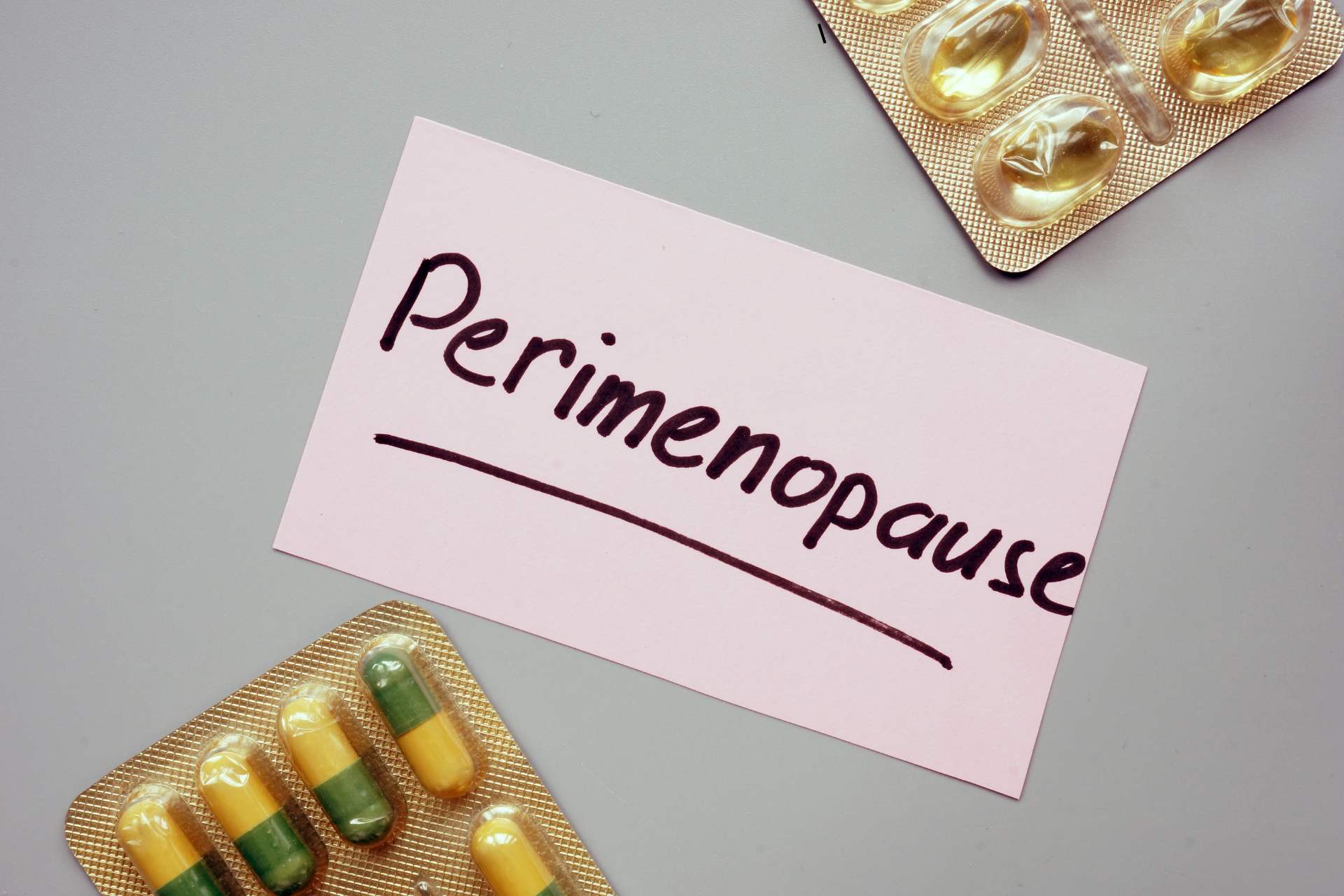Are you experiencing the sudden onset of symptoms such as hot flashes, mood swings, sleep disturbances, or changes in libido? These are common signs of perimenopause, the transitional period leading up to menopause. For many women, this time can feel overwhelming due to fluctuating hormones, which can affect both physical and emotional well-being.
If you’re noticing these symptoms and they’re interfering with your daily life, Hormone Replacement Therapy (HRT) could be a solution to help manage these changes and improve your quality of life. In this blog post, we’ll explore how HRT works, the benefits it provides, and why it may be an effective option for women navigating perimenopause.
What is Perimenopause?
Perimenopause is the period that occurs before menopause, typically beginning in a woman’s 40s, though it can start earlier. During this time, the ovaries gradually produce less estrogen and progesterone, two key hormones that regulate the menstrual cycle and support reproductive health. These hormonal shifts lead to a range of symptoms, some of which can last for several years before menopause is reached.
Some common symptoms of perimenopause include:
- Irregular periods: Changes in the length of menstrual cycles and heavier or lighter periods.
- Hot flashes: Sudden feelings of heat, often accompanied by sweating and redness in the face and neck.
- Night sweats: Hot flashes that occur during sleep, leading to disturbed rest.
- Mood swings: Increased irritability, anxiety, or depression.
- Sleep disturbances: Difficulty falling asleep or staying asleep due to night sweats or hormonal changes.
- Reduced libido: A decrease in sexual desire or arousal.
- Vaginal dryness: A result of reduced estrogen levels, which can cause discomfort during intercourse.
These symptoms vary widely in severity from woman to woman, and some may experience only mild discomfort, while others may face significant challenges in daily life.
What is Hormone Replacement Therapy (HRT)?
Hormone Replacement Therapy (HRT) is a medical treatment designed to replace the hormones—mainly estrogen and progesterone—that the body no longer produces in adequate amounts during perimenopause and menopause. HRT can help balance these hormone levels, alleviating many of the symptoms associated with perimenopause.
There are two main types of HRT:
- Estrogen-only HRT: This treatment is typically prescribed to women who have had a hysterectomy (removal of the uterus) and no longer have a risk of uterine cancer.
- Combined HRT: This form includes both estrogen and progesterone (or a synthetic version of progesterone called progestin). Combined HRT is recommended for women who still have their uterus, as progesterone helps protect the lining of the uterus from the risk of cancer associated with estrogen-only therapy.
HRT is available in several forms, including pills, patches, gels, and injections. Each method has its pros and cons, and the right option for an individual depends on her personal health, preferences, and lifestyle.
How HRT Can Help Manage Perimenopausal Symptoms
HRT works by replenishing the hormones that are declining during perimenopause. This can significantly reduce the severity of symptoms and improve overall well-being.
- 1. Relief from Hot Flashes and Night Sweats
Hot flashes are one of the most common and uncomfortable symptoms of perimenopause. HRT can effectively reduce the frequency and intensity of hot flashes by restoring estrogen levels. Estrogen helps regulate the body’s temperature control center in the brain, preventing the sudden spikes of heat that characterize hot flashes. Many women report feeling significantly cooler and more comfortable after starting HRT.
Similarly, HRT can help alleviate night sweats, which are hot flashes that occur during sleep and often disrupt rest. By regulating hormone levels, HRT can help promote better sleep, reducing the frequency of night sweats and helping you wake up feeling refreshed.
- Stabilizing Mood Swings
The hormonal fluctuations during perimenopause can cause emotional instability, leading to mood swings, irritability, anxiety, and even depression. Estrogen plays a role in the production of serotonin, a neurotransmitter that helps regulate mood. When estrogen levels drop, it can lead to a decrease in serotonin, contributing to feelings of sadness and emotional imbalance.
HRT can help stabilize mood by boosting estrogen levels, which in turn supports serotonin production. Many women find that their mood improves after starting HRT, with less irritability and greater emotional stability.
- Improving Sleep Quality
Hormonal changes during perimenopause can cause significant sleep disturbances. Night sweats, anxiety, and the inability to fall asleep due to hot flashes can lead to poor sleep quality and fatigue during the day. By addressing the underlying hormonal imbalances with HRT, women can experience better sleep, leading to improved energy and mental clarity.
- Enhancing Sexual Health and Libido
As estrogen levels decline, many women experience reduced libido and vaginal dryness, which can make sex uncomfortable. HRT can help by restoring estrogen to the vaginal tissues, improving lubrication and increasing sexual desire. Additionally, balancing hormone levels may improve your sense of well-being, which can also positively affect your libido.
- Supporting Bone Health
Estrogen is essential for maintaining bone density. During perimenopause, the decline in estrogen can lead to a decrease in bone mass, putting women at an increased risk of osteoporosis. HRT can help protect bones by maintaining estrogen levels, supporting bone strength, and reducing the risk of fractures as you age.
- Cognitive Function and Memory
Many women in perimenopause report experiencing forgetfulness, brain fog, and difficulty concentrating. Estrogen has protective effects on the brain, and its decline can contribute to cognitive changes. HRT may help protect brain function by maintaining estrogen levels, potentially improving memory, focus, and mental clarity.
Perimenopause can be a challenging time for many women, but Hormone Replacement Therapy (HRT) offers a promising solution to manage the symptoms of hormonal imbalance. By replenishing the hormones that naturally decline during this transition, HRT can provide relief from hot flashes, mood swings, sleep disturbances, and other symptoms, helping to improve overall quality of life.
If you’re experiencing symptoms of perimenopause and are interested in exploring Hormone Replacement Therapy (HRT) as a treatment option, our team of experienced therapists and nurse practitioners is here to help. Visit us today and let us guide you toward a healthier, more balanced life.






